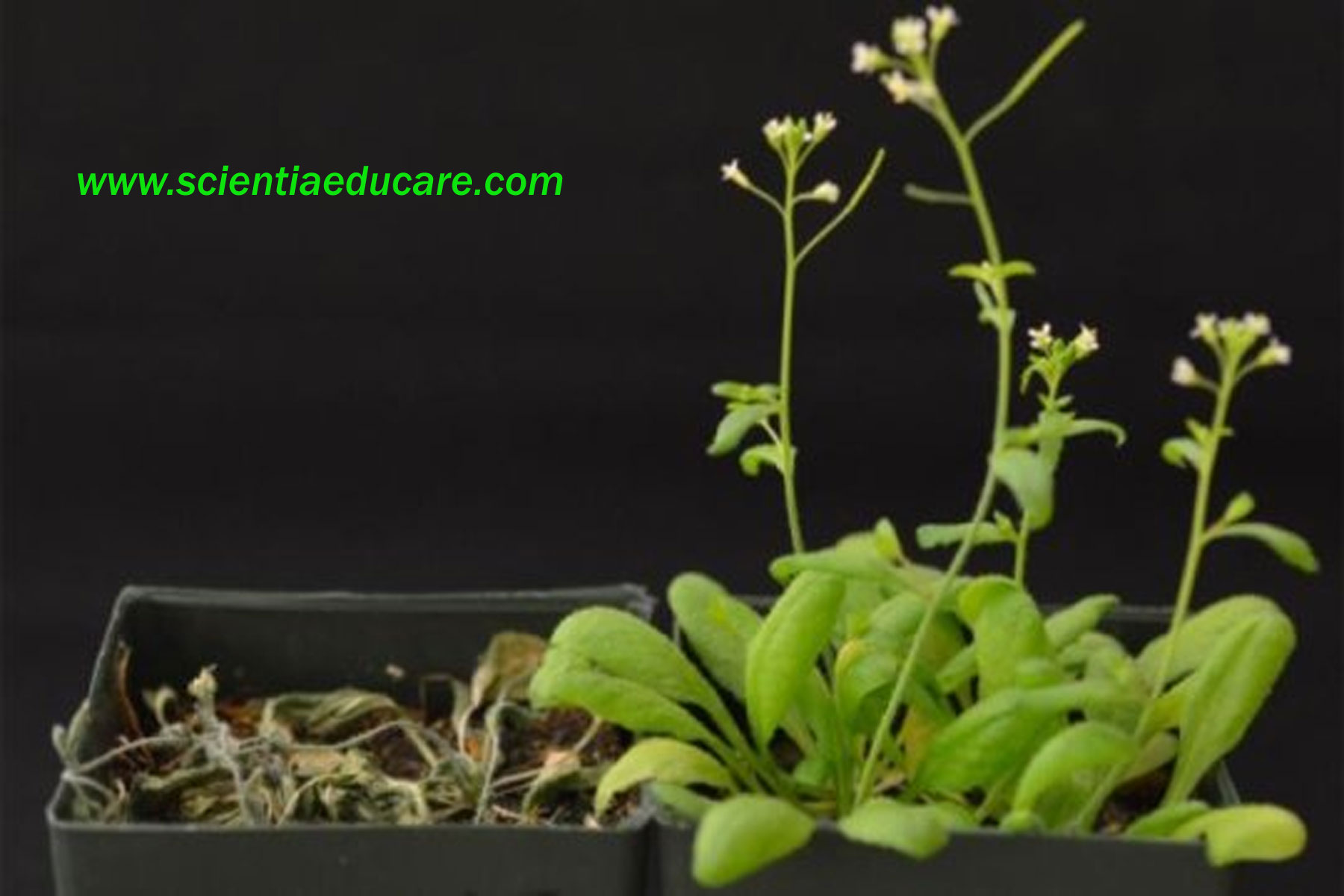Sean Cutler’s lab introduced the engineered receptor into transgenic Arabidopsis to establish if it was sufficient to improve survival after drought, one measure of drought tolerance. The transgenic (right) but not non-transgenic plants (left) show improved survival after an extended drought. In this experiment water is withheld for 12 days, which cause severe wilting, and the plants are then re-watered to assess survival.
UC Riverside-led research in synthetic biology provides a strategy that has reprogrammed plants to consume less water after they are exposed to an agrochemical, opening new doors for crop improvement.
Crops and other plants are constantly faced with adverse environmental conditions, such as rising temperatures (2014 was the warmest year on record) and lessening fresh water supplies, which lower yield and cost farmers billions of dollars annually.
Drought is a major environmental stress factor affecting plant growth and development. When plants encounter drought, they naturally produce abscisic acid (ABA), a stress hormone that inhibits plant growth and reduces water consumption. Specifically, the hormone turns on a receptor (special protein) in plants when it binds to the receptor like a hand fitting into a glove, resulting in beneficial changes — such as the closing of guard cells on leaves, called stomata, to reduce water loss — that help the plants survive.














